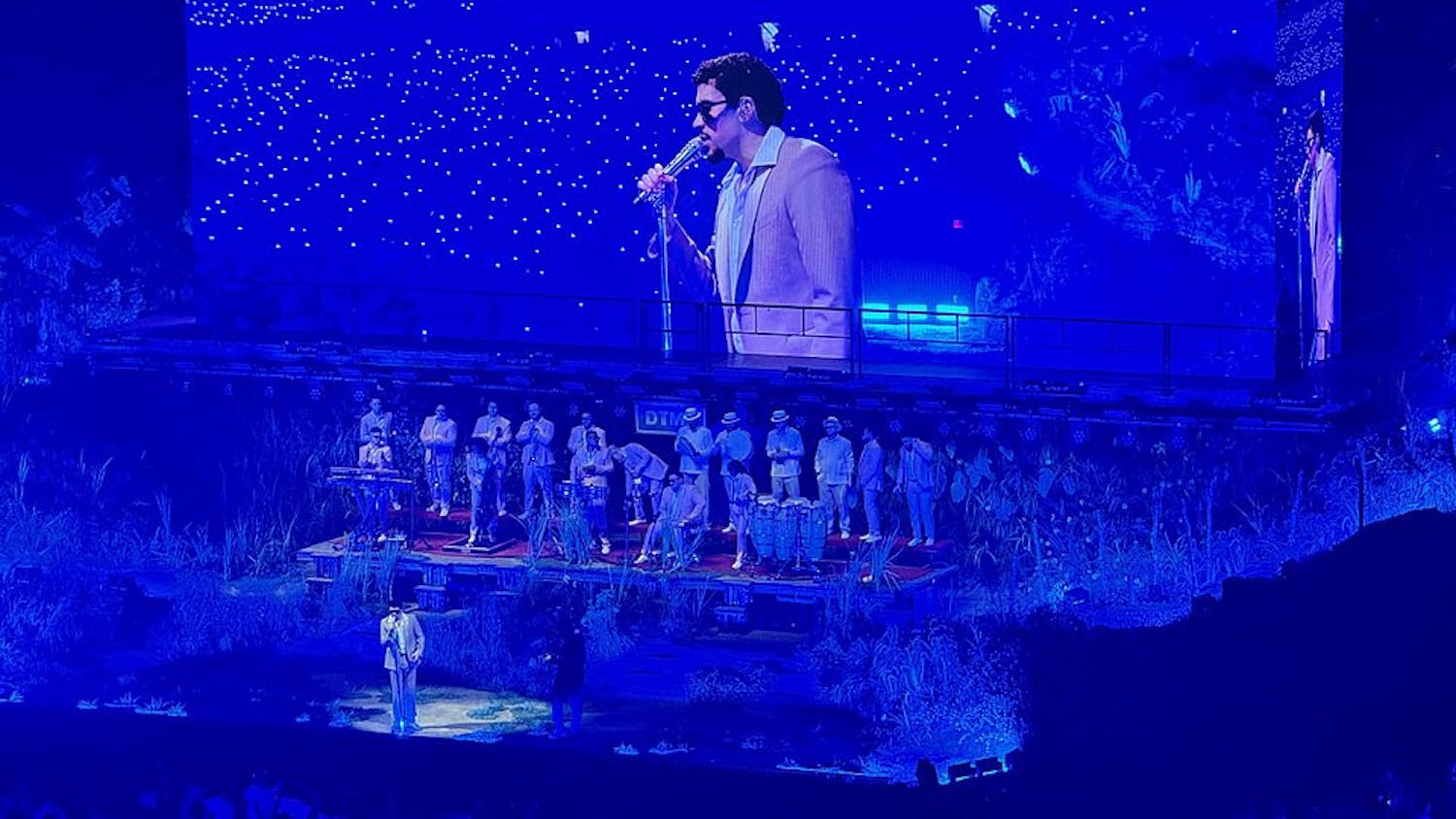Before embarking on this article, I wish to make a statement about what I will be referring to as ""our culture."" I am choosing to engage with the culture that is widely propagated via our mass media, but surely is not the only culture in America. Yet, as the dominant culture, almost everyone in the U.S. is subject to its reaches, and it would be a mistake to dismiss this way of life as just one amongst many. As a white, middle-class male, I am inherently a part of this dominant culture, and I will engage with it here.
Here's a familiar scene: Walking into my friend's house, I saw her younger brother sprawled out on their sofa playing an absurdly high-definition video game. The only signs that there was a human being in the room was his shaggy-haired head poking up slightly over the back of a plush couch and one of his sockless feet dangling out over the edge. He didn't pause his game to say hello.
According to a new study from the Kaiser Family Foundation, American kids ages 8 to 18 now spend more than seven-and-a-half hours each day using a smart phone, computer, television or other electronic device. The study shocked its authors, who had concluded in 2005 that we could not be any more plugged in than we already were.
Now, do we understand this level of privilege? Can we fully take in the serious nature of our critically blunted culture—one that advocates for individual hedonism over community development? We must take it seriously, because it is causing horrible destruction, both to the natural environment and to humanity.
The green revolution cannot be separated from a social revolution. It cannot be conceived of without consideration for the type of knowledge that brought us here—knowledge that declares that the whole world can be decomposed into distinct realms that can be treated separately and without context.
There is no revolution in the newly popular green business or in our own ""We Conserve"" program. To think of simply curbing our carbon footprint by using less paper and driving hybrid vehicles is to follow the same track that got us here.
A local illustration of this point: Fire Station #12 on Madison's far west side is so green that it just received the U.S. Green Building Council's ""Platinum"" status. The problem with this, argues Michael Barrett in a recent opinion article published in the Isthmus, is that Station #12 is located in ""car-mandatory suburbia."" Barrett points out that Station #3 on Williamson Street is within walking distance to ""everything,"" but because it is a 1950's-era building it will never win a green architecture award. Thus, Barrett admonishes Mayor Dave Cieslewicz for seeing this as a great step toward a sustainable city because the award fails to recognize context.
This same decontextualization of knowledge tells us to ignore the blatant hypocrisy in the vision of an economy switching to so-called ""sustainable"" practices through green business, and an economy that is based fundamentally on necessary and limitless growth by consumption.
In a recent article in ""The Ecologist,"" Michael P. Nelson and John A. Vucetich mock this position: ""With the angel of technology, and the spirit of consumerism, we will buy our way out of environmental crisis.""
Have we really not yet internalized the fact that for us to be the ""best,"" others must be the ""worst?"" For us to over-consume in brightly lit department stores, others must over-produce in shadowy depths?
It is interesting that talks and papers about climate change often end with an apologetic statement about the necessity of human attitude change. It usually goes something like: ""I hate to say it, but this problem will likely require some lifestyle changes."" These are weak, ultimately complacent declarations, lacking any appreciation of a real shift in behavior.
Why do we ""hate to say it?"" The message between the lines in statements like this, just as in national policies geared toward the present conception of green business, is that our way of life is great! Everything would be awesome, except for this damn reality of a finite planet. Bummer.
Well I don't hate to say it. I think our way of life is heavily destructive and we are extremely unhappy. Under the present system, people have been steadily pushed toward having little meaning beyond their individual contribution to GDP.
Instead of ""getting down to Disney World in Florida"" as President Bush advised in a speech shortly after 9/11, we should think deeply about the environmental and social effects of this Disney World ideal upon which much of our society is built. Let us acknowledge that we are told to forget daily that our actions have consequences, are situated within a context.
Now, we can go separately find a niche of interest where our ideas are never really questioned. We can, as a small bastion, defend ourselves against ‘outsiders,' content to live our lives in a self-created, self-reinforced stagnation. Or we can engage: engage inwardly to bring about a revolution of thought and engage externally, with each other, to bring about a new society in which decontextualization and materialistic consumption may not rule the day.
It is we who embody our culture and make it stand. It is we who accept this world as static and drone on day after day. It is we who create this world every day upon waking, and nobody can change its course but us.
Gregory Reeb is a senior majoring in philosophy and analysis of complex systems. Please send responses to opinion@dailycardinal.com.





